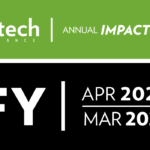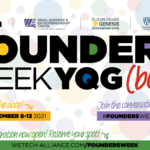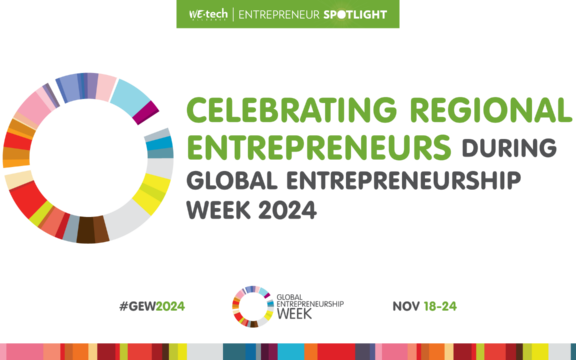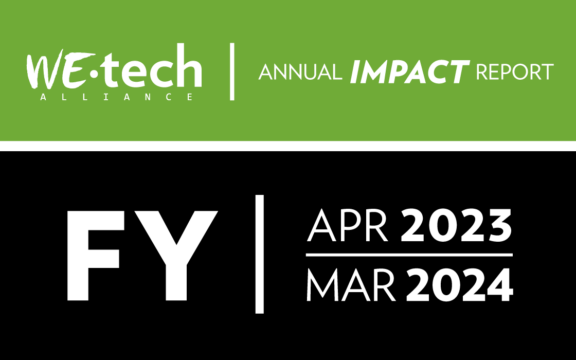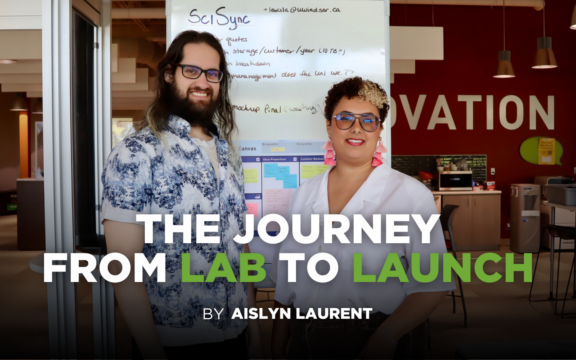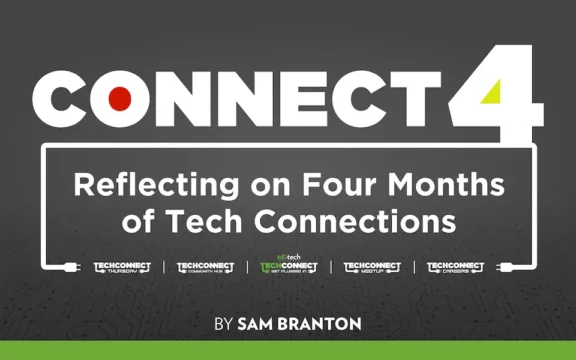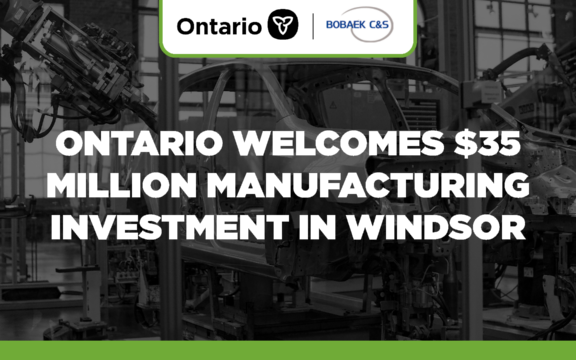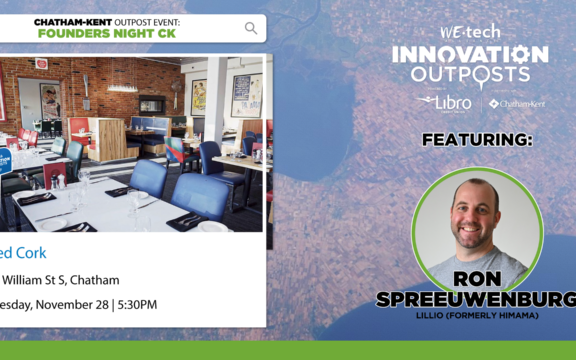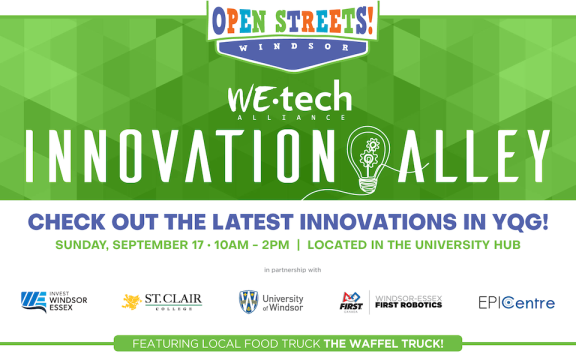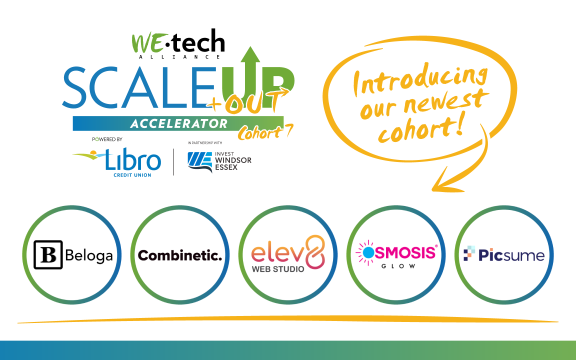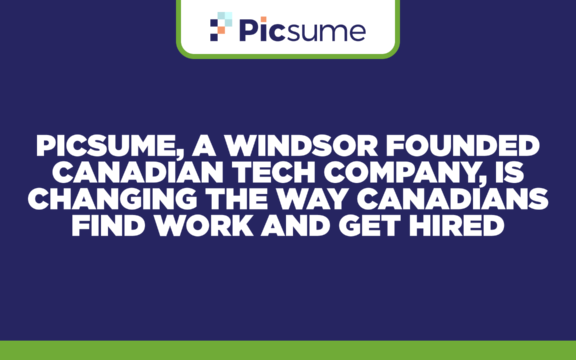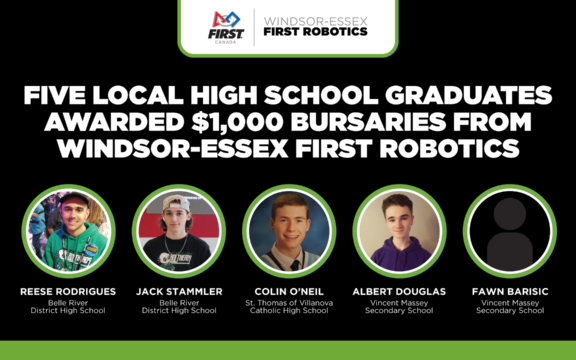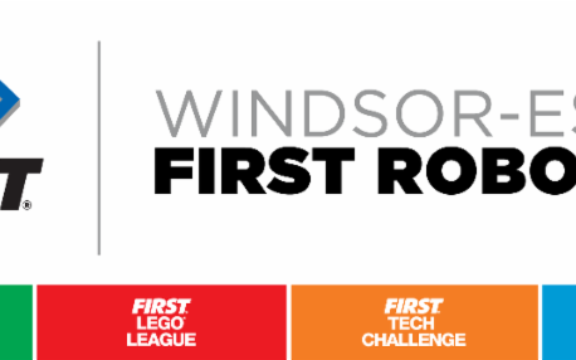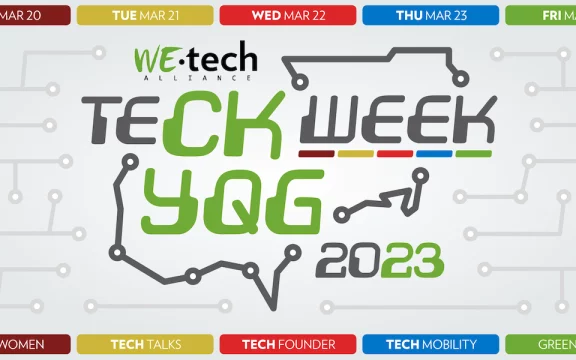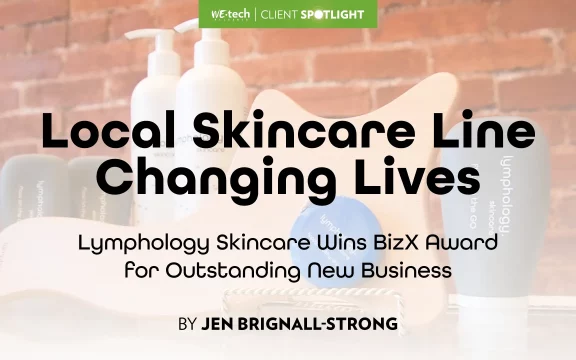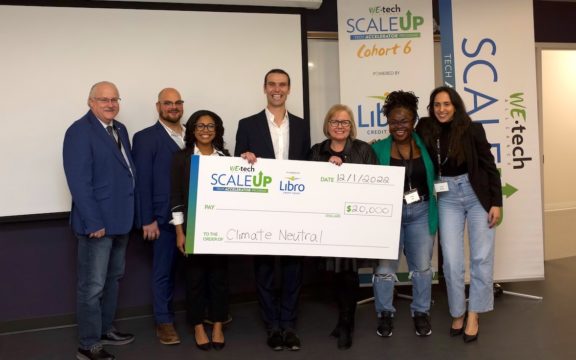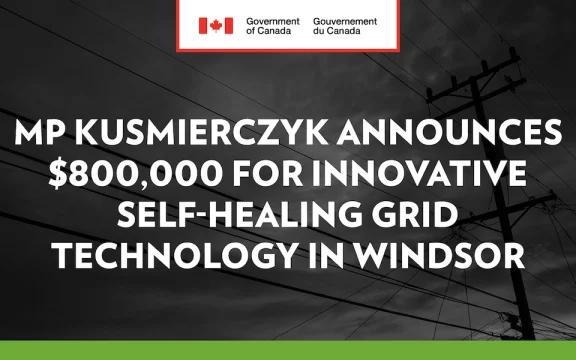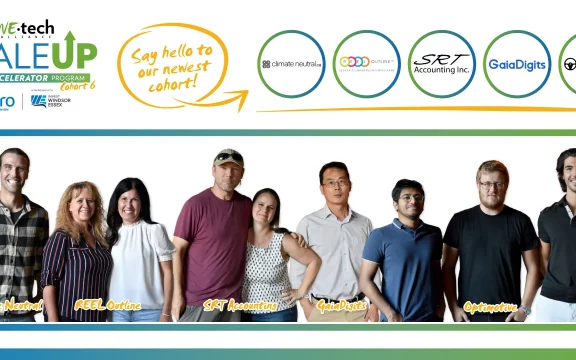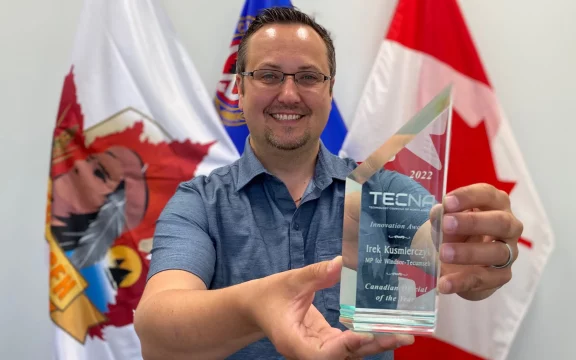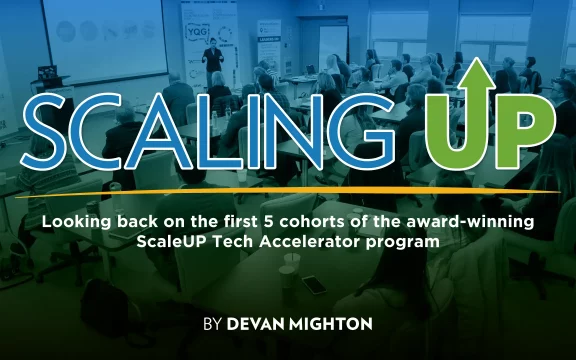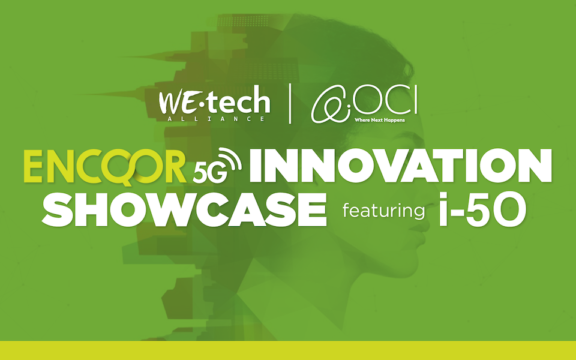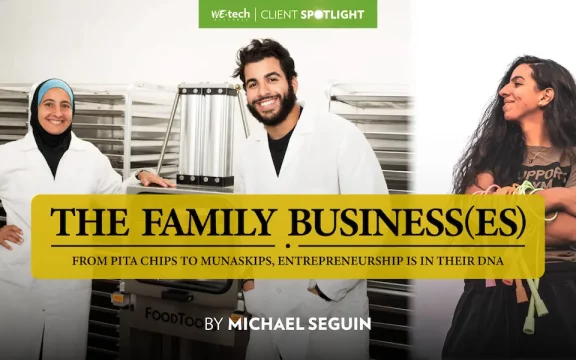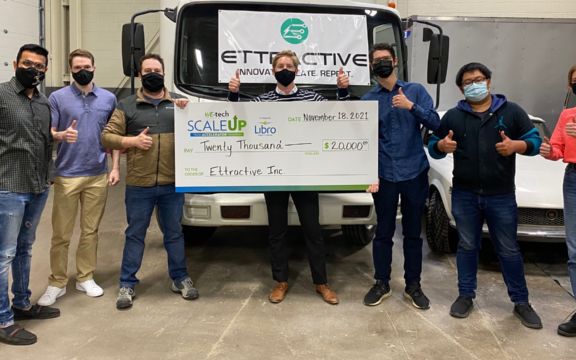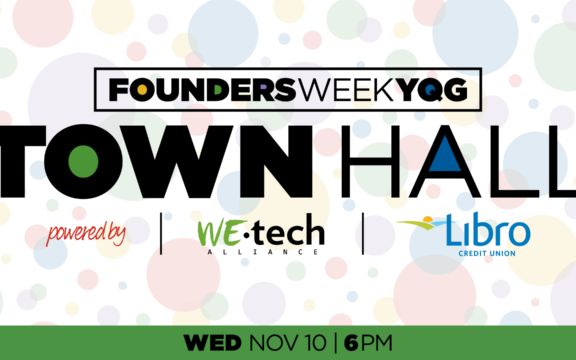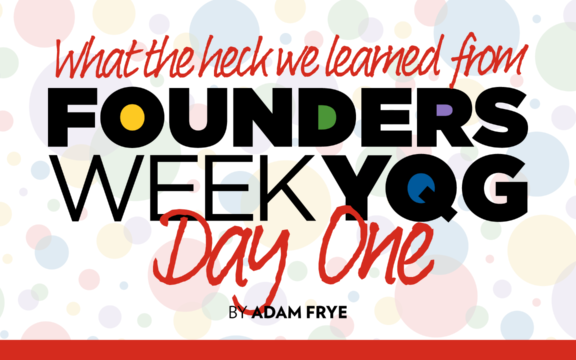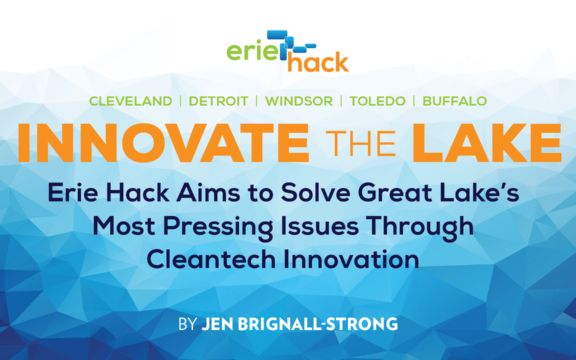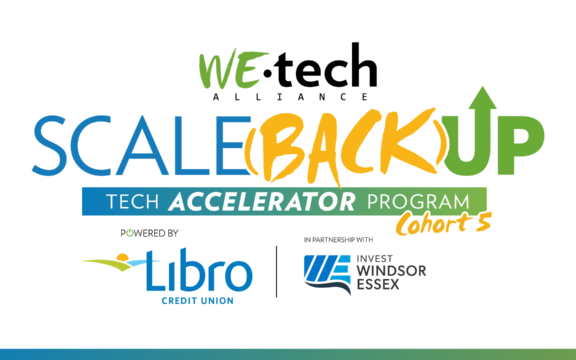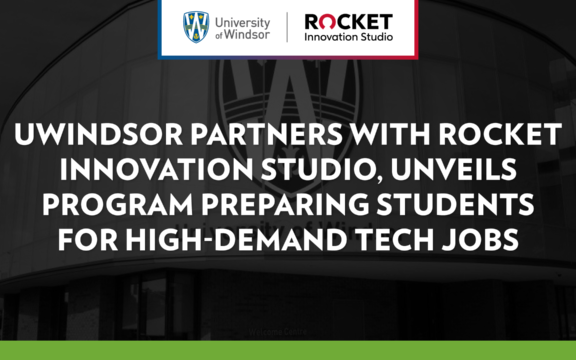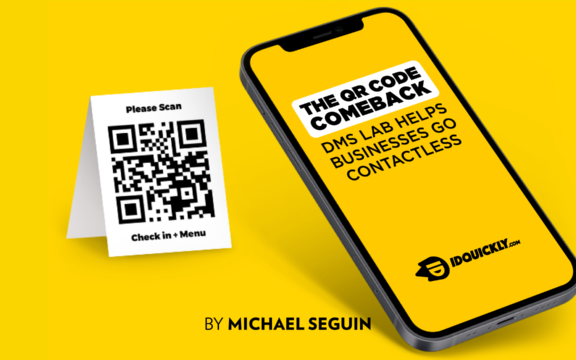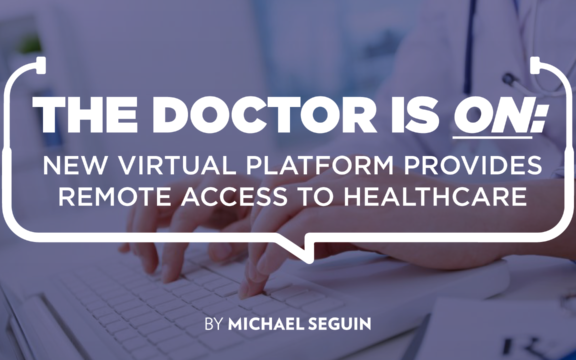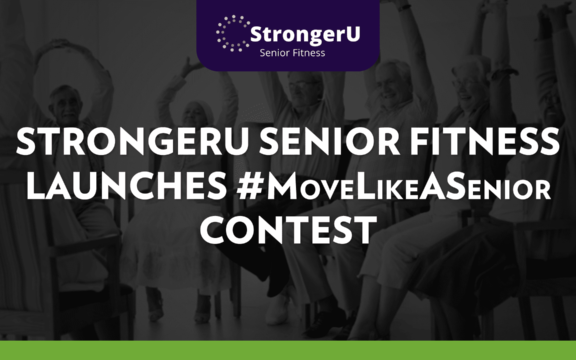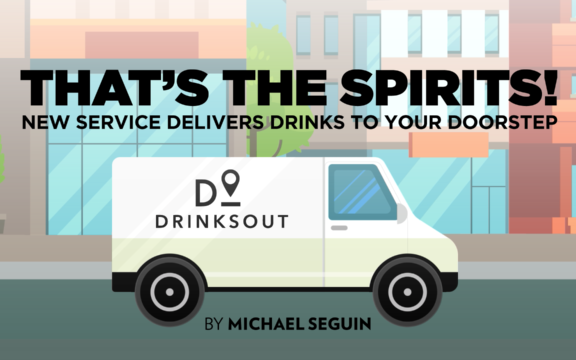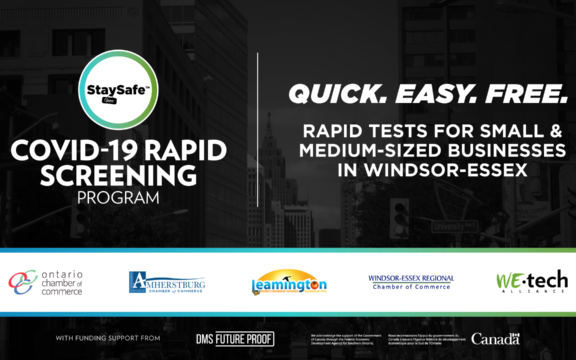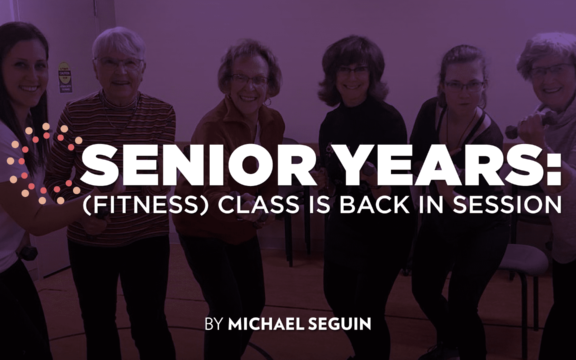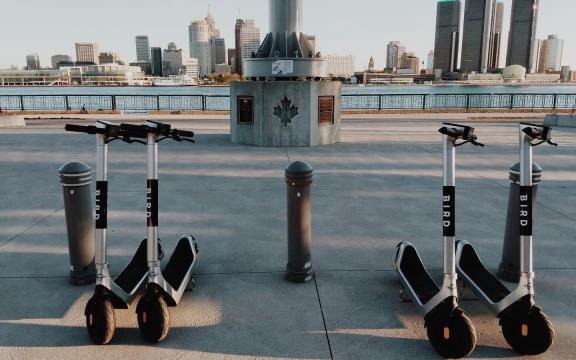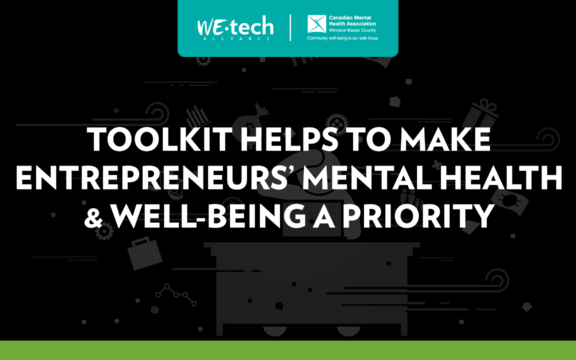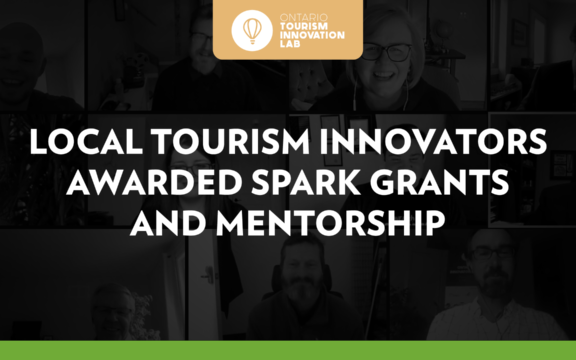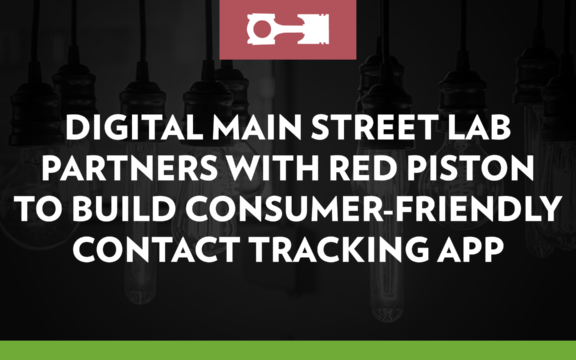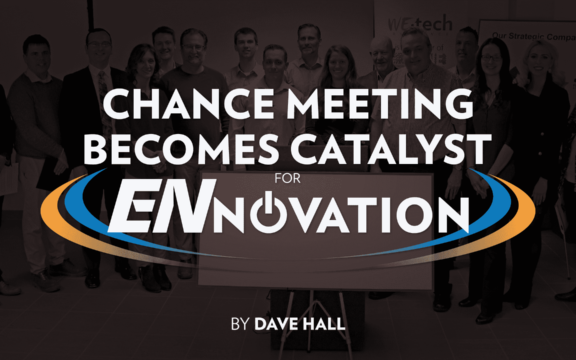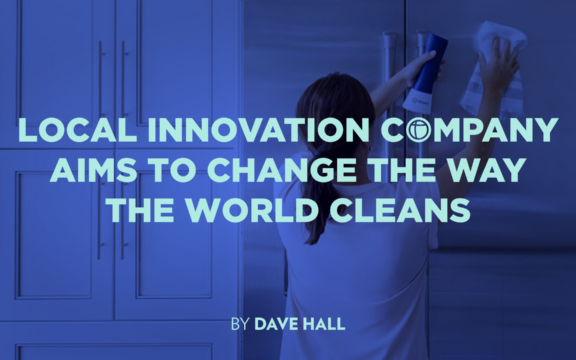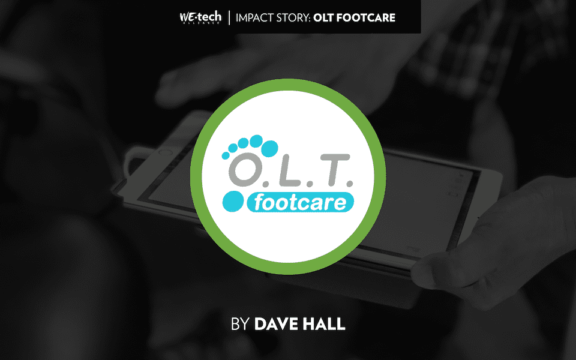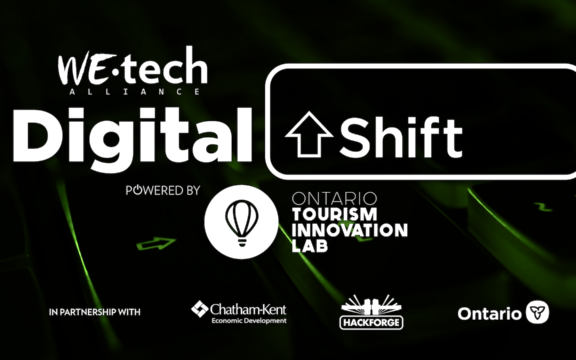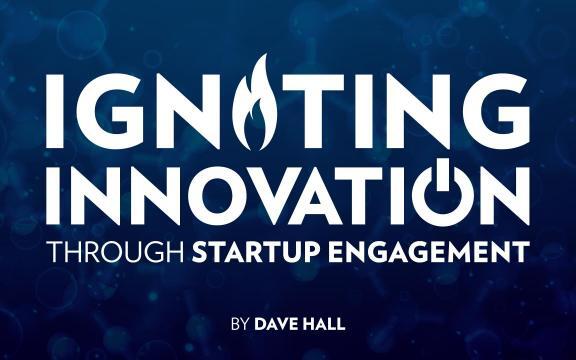From reading glasses to bandages, pacemakers to wheelchairs, medical technology plays a pivotal role in our day to day routines; improving our quality of life and providing solutions to complex medical issues.
While we often think of these medical breakthroughs as being created in high-tech laboratories across the globe, many of these innovative products, services, and concepts are actually being dreamed up and manufactured in our own backyard.
In Southwestern Ontario and Southeast Michigan, doctors, dentists, and many other healthcare professionals are working hard to create solutions to real life problems they’re encountering in the field; from producing practical, affordable mobility devices to digitizing medical records.
“Medtech is such a wide breadth of things,” explains Adam Castle, Director of Venture Services for WEtech Alliance. “You have products that are of a physical nature, but you’ve also got assistive software for medical professionals.”
Currently, medtech companies make up approximately 13% of WEtech’s active client portfolio, taking advantage of the many resources and programs available to assist these entrepreneurs in bringing their ideas to market.

Learn more about our client portfolio in our recently released FY 2020-21 Annual Impact Report.
Best Foot Forward
For Yong Li, President and CEO of TDL Systems, working with WEtech over the past five years has enabled his company to focus on the research and development of their patented 3D foot scanning technology, which was created by leveraging the facial recognition software found in iPhones.
“WEtech has actually played a very important role in guiding us and has linked us with several different resources and government agencies,” he explains.
TDL creates custom-made orthotics and sandals under the brand name “OLT Footcare” using 3D scan technology and Additive Manufacturing.
After creating several earlier designs for a portable, cost-effective 3D scanner, Li and his team realized the facial recognition software on an iPhone could actually be used as a 3D scanner. The problem is, the facial ID sensor is on the front side of the phone, making it impossible for a podiatrist to use it and be able to see what they were doing at the same time.
“We came up with a solution, which is basically a mirror attachment for an iPhone that can reflect the facial ID sensor by 90 degrees. This way you can see both the object (the foot) and also the screen,” he explains.
Li says it’s the perfect solution because most doctors have an iPhone in their pocket already.
“If you just give them a scan mirror, they’re ready to go,” he says, noting the cost for one of these devices is just $45 CDN, making it extremely cost efficient. “The technology is so easy to deploy.”

Using a free app also created by the company, the podiatrist then uploads the scan data to the OLT server for processing.
“Everything is uploaded to our server in a matter of ten seconds no matter where you are,” says Li, adding that doctors can choose to 3D print the orthotics themselves in their own office, or have OLT print them.
OLT’s technology is currently being used by podiatrists in the UK, Japan, Malaysia, China, the US, and other parts of Canada.
“We are giving full control to the doctors, and they can make them right in their clinic. There’s no waiting time, no shipping time. We have a lot of advantages.”
“This has basically changed the whole game,” he adds. “Now it costs doctors almost nothing to be equipped with a 3D scanner.”
“My goal was to make something that was affordable and safe that could be installed virtually anywhere in the world that didn’t need electricity or a battery.”
2Innovate, a Michigan-based company headed by Canadian Doctor Brad Burke, is looking to change the game when it comes to creating safe, functional, and affordable ambulation devices for the disabled.
As a Physical Medicine Rehabilitation Specialist, Dr. Burke specializes in individuals who have difficulties ambulating. In 2015, while working to rehabilitate an injured man who was afraid of falling, Dr. Burke realized there were no devices that could be used in the home or even at the hospital that would allow the patient to walk.
“I was looking for solutions that weren’t really even in the marketplace,” he recalls.
From that experience, Dr. Burke came up with the Windsor Gait Assist; a patented, cost-effective traveling “seat belt” for the elderly and disabled that significantly reduces the risk of serious injuries from falls on stairs and level surfaces.
“My goal was to make something that was affordable and safe that could be installed virtually anywhere in the world that didn’t need electricity or a battery,” says Burke.
After founding his company in early 2019, Dr. Burke began working with WEtech for assistance with research and development, as well as creating a solid value proposition.
“They better prepared our company to reach out to investors and other companies,” says Dr. Burke. “Deborah and Adam have better prepared us to get to the next stages of commercialization.”
While the Windsor Gait Assist is still in early development, Dr. Burke and his team are hoping to officially launch the product in 2023, making it available for use in private residences, long-term care homes, rehabilitation facilities, and hospitals.
Dr. Burke is also simultaneously developing Peritect, a patented, non-invasive medical device that detects intestinal motility and the safety of intestinal feeding, thereby shortening hospital stays and reducing healthcare costs.
Stronger Solutions
Other medtech companies, like StrongerU Senior Fitness, are working to take the strain off our healthcare system by ensuring our aging population remains physically active for as long as possible.
Through her work with seniors over the years, Founder & Creative Director Emily Johnson saw a need for education tools and resources for teaching fitness classes to the elderly.
“I thought ‘Ok, I’m just going to create this solution’ because there really wasn’t anything out there,” says Johnson.
Stronger U Senior Fitness is an education company that specializes in working primarily with retirement communities and long-term care homes, training their staff to offer high quality senior fitness classes. Their online instructor course gives participants 30 minutes of brand new class content each month. In the space of seniors’ fitness, Stronger U has emerged as the only virtual platform to deliver a “Training as a Service” model.

StrongerU Senior Fitness founder Emily Johnson attends the virtual 2020 International Council on Active Aging conference
Johnson says she sees Stronger U continuing to evolve over the next few years to meet the enhanced demand.
“We started off with the instructor course so we could help people, real life people to be able to be in the room with the seniors and adapting and adjusting to their needs in the class,” she says. “A future adaption that I see in the works right now is a Stronger U video game where people are actually sitting in front of a video game that uses AI and recognizes their movements and is a virtual teacher of sorts.”
She also hopes to bring the program directly to seniors in their homes, offering them access to videos and instructors on a virtual basis right at home.
With COVID-19 restrictions still in place, a lot of the focus right now is on virtual. Johnson says she is currently working with clients remotely in the US, but looks forward to leveraging our proximity to the US border to help her grow her business in the future.
“Being close to the border is so key to being able to run the business at a good value.”
Pandemic Pivot
For local companies like Audacia Bioscience, the pandemic presented a unique opportunity to drive innovative solutions that are critical to allowing us to safely co-exist with COVID-19.
Prior to the pandemic, Audacia Bioscience had launched their AI based clinical research platform for Cannabis Research with three large clients. When the pandemic hit, all research was put on hold and research contracts suspended. They then pivoted to adopt their diagnostic technology platform to create a test to detect COVID-19.
“Over a very short period, we successfully invented an antigen test and a 15 minute rapid diagnostic test that uses a single drop of blood to detect if a person has been exposed to COVID-19,” says CEO Dr. Phillip Olla.
Olla explains that their products were independently validated in Italy, China, USA, and Finland. Using the experience they gained from the development and validation of diagnostic tests, they then pivoted to focus on developing software tools that could augment the rapid tests to provide data and insight from the test results.
“The data generated from diagnostic tests plays an important role in safely reopening the Canadian economy,” he explains.
Castle notes that other innovators in our region played an integral role in the early stages of the COVID-19 pandemic as well; quickly pivoting to manufacture shields and Plexiglas for hospitals, producing hand sanitizer, and matching suppliers with people who were searching for PPE.
“In the early days, we had all these manufacturers that got approval from Health Canada to start doing these things but there wasn’t enough supply,” he says, noting that WEtech was able to play a role in connecting manufacturers with the supplies they need.
“The pandemic has shown us that geographic boundaries are less relevant in a virtual environment, and our ecosystem is more connected than ever.”
Creating all these medhealth innovations is only the beginning. Once a company has fine-tuned their product or service, the focus now turns to getting it to market.
Enter Medhealth.
Founded in 2015 by healthcare stakeholders in Southeast Michigan and Southwest Ontario, including WEtech Alliance, MedHealth is a regional collaboration designed to accelerate the adoption of technologies that improve quality of care and contribute to economic growth.
The MedHealth Matchmaking Mixer takes place virtually October 21st to the 22nd. The event connects healthcare organizations and research institutions in Southeast Michigan and Southwest Ontario with market-ready digital health and medical device companies offering innovative technologies that can address their challenges. Last year’s virtual event connected 244 attendees from 9 different countries.

Stacey Frankovich, Program Manager of MedHealth, says MedHealth plays a critical role in convening, educating, and connecting Michigan and Ontario healthcare innovation stakeholders.
“The pandemic has shown us that geographic boundaries are less relevant in a virtual environment, and our ecosystem is more connected than ever,” she explains. “Our recent expansion to include London as part of our Southwestern Ontario partners, joining Windsor-Essex and Chatham, will be instrumental in growing our cross-border relationships. This growth will help our ecosystem learn about doing business on both sides of the border and will foster important connections that will bring healthcare innovators closer to commercialization.”
Castle agrees.
“Medhealth has become this insanely important tool because our clients have access to hospitals on both sides of the border and now London as well,” he explains. “You have all these important pieces in place where they’re all looking for innovations and we get to collide entrepreneurs and all of their beautiful ideas with these investors and people on the ground who really know what’s needed.”
“It’s been this incredible piece of our programming that happened really organically over the past six or seven years and really focuses on ‘what’s next?’”

Jen Brignall-Strong was born and raised in Windsor and is a graduate of the St. Clair College Journalism program. She has worked in the media for over 15 years, writing for multiple local publications including The Drive Magazine. Jen is currently a freelance journalist and enjoys sharing stories from the many remarkable individuals that make up our region. Check out more of Jen’s stories HERE.

